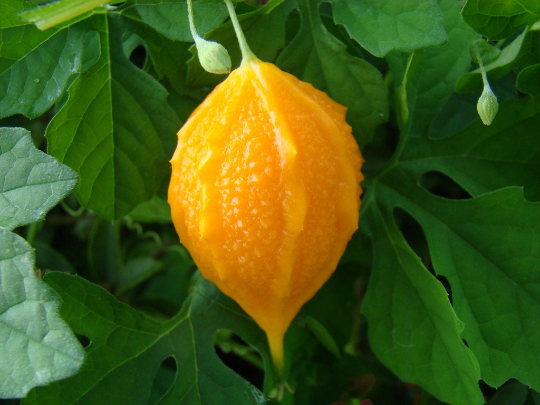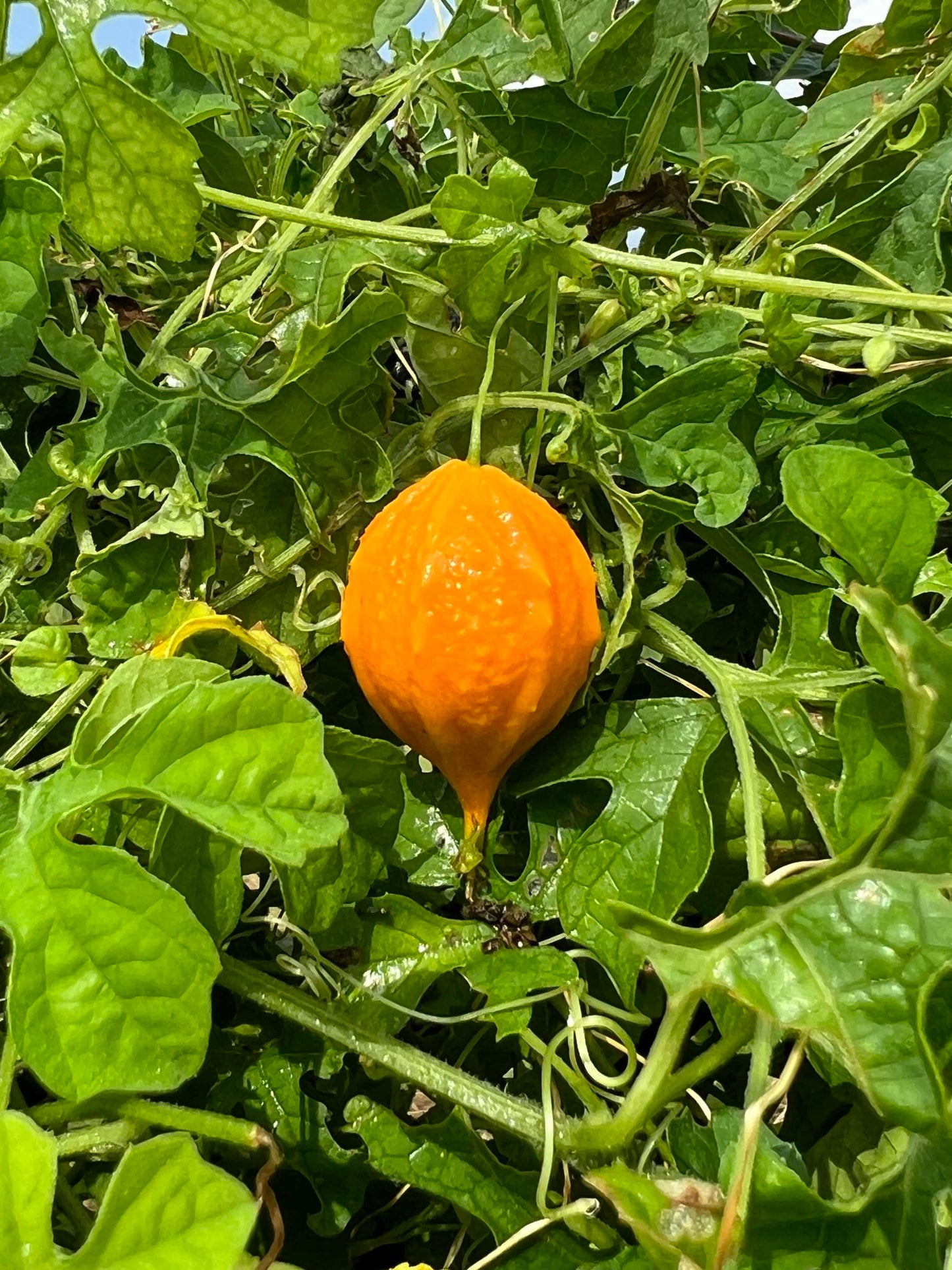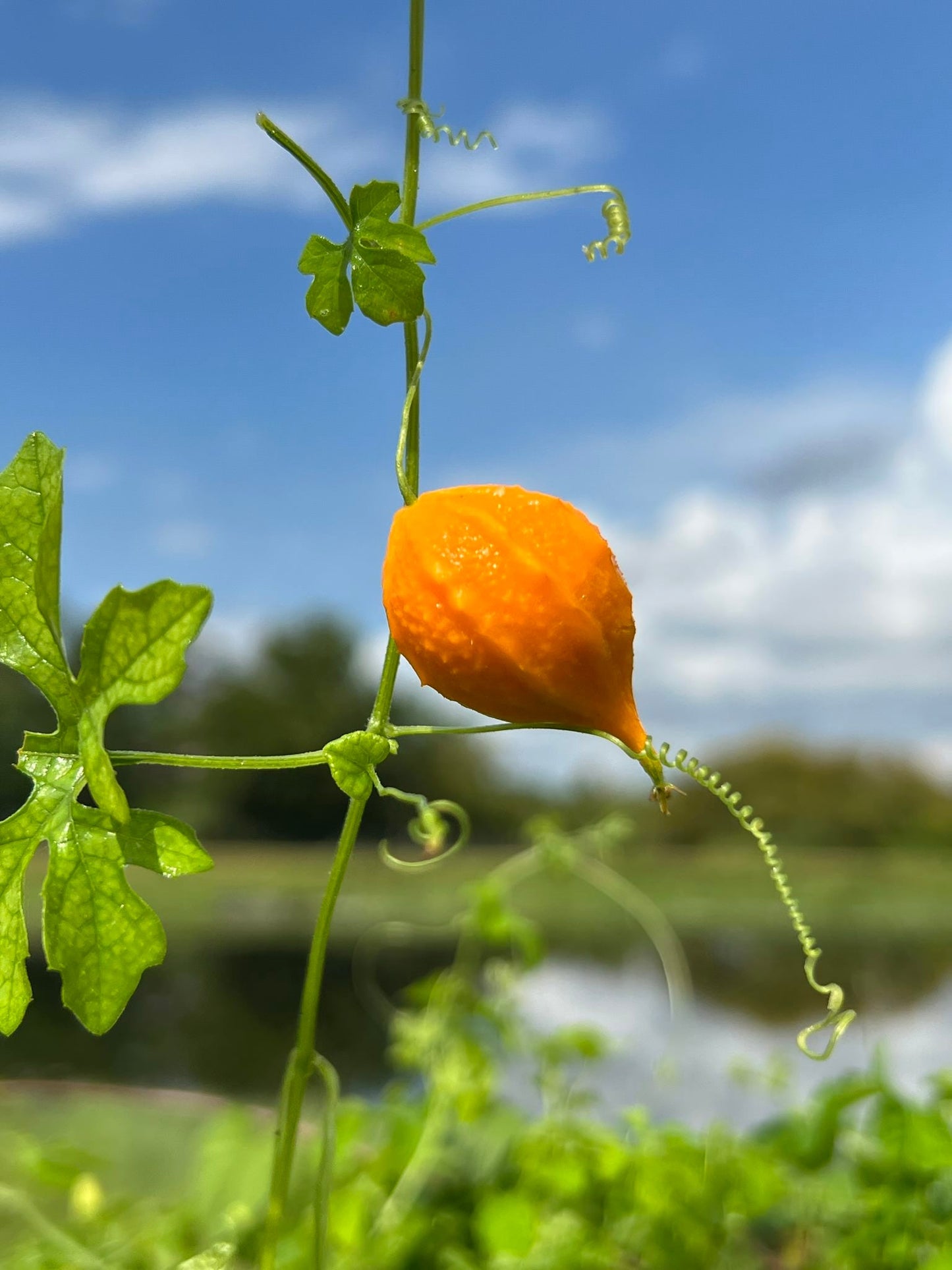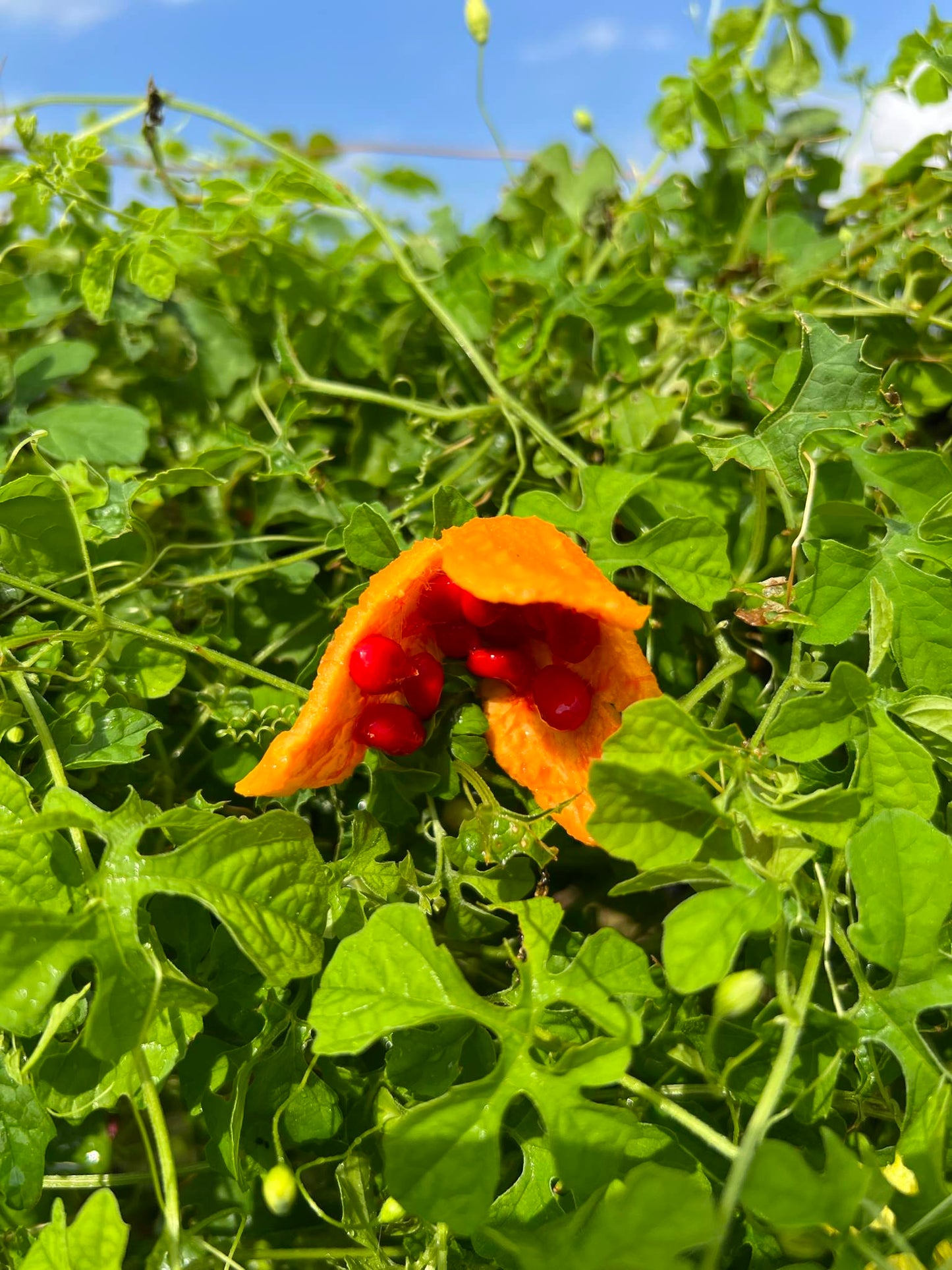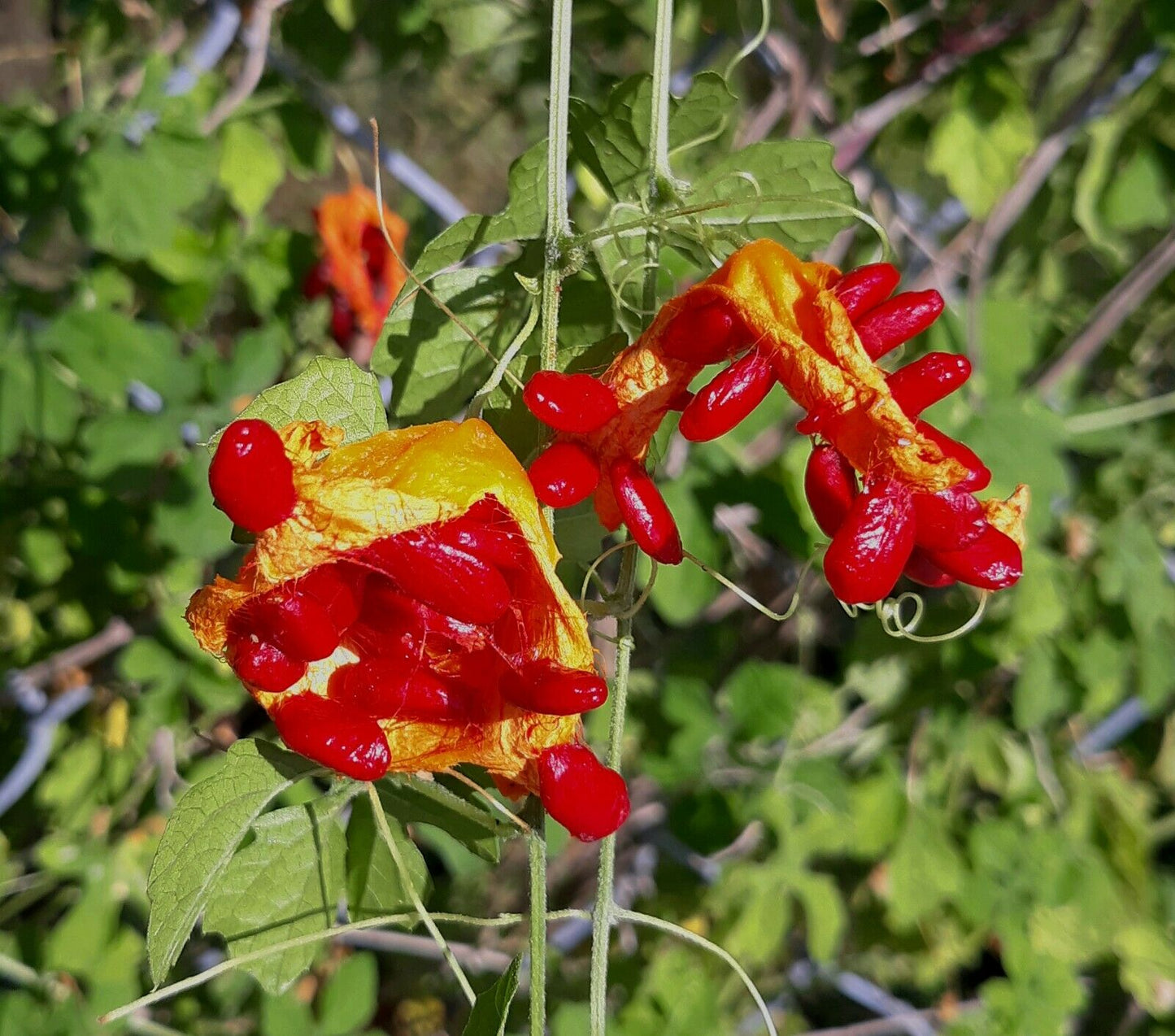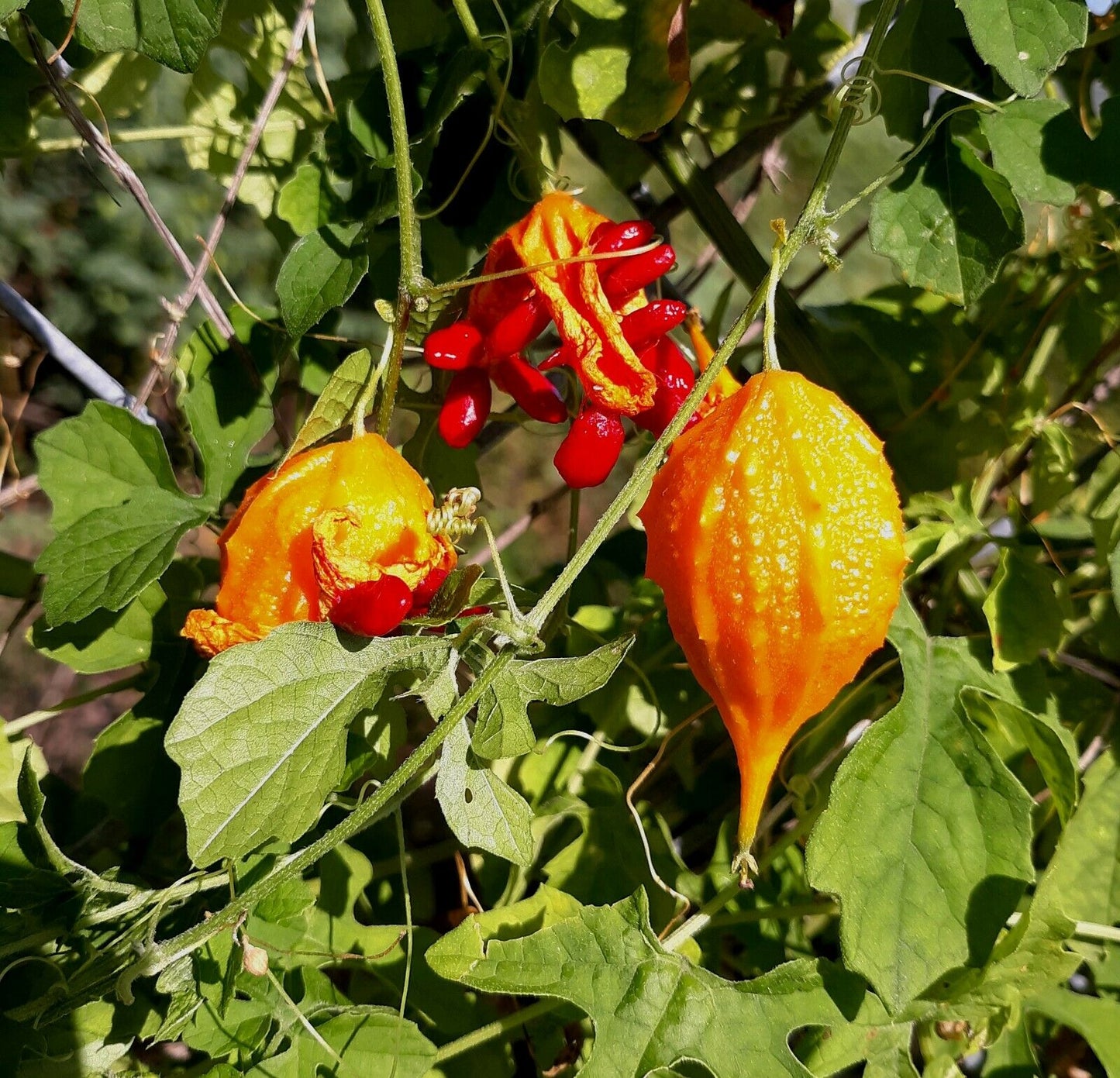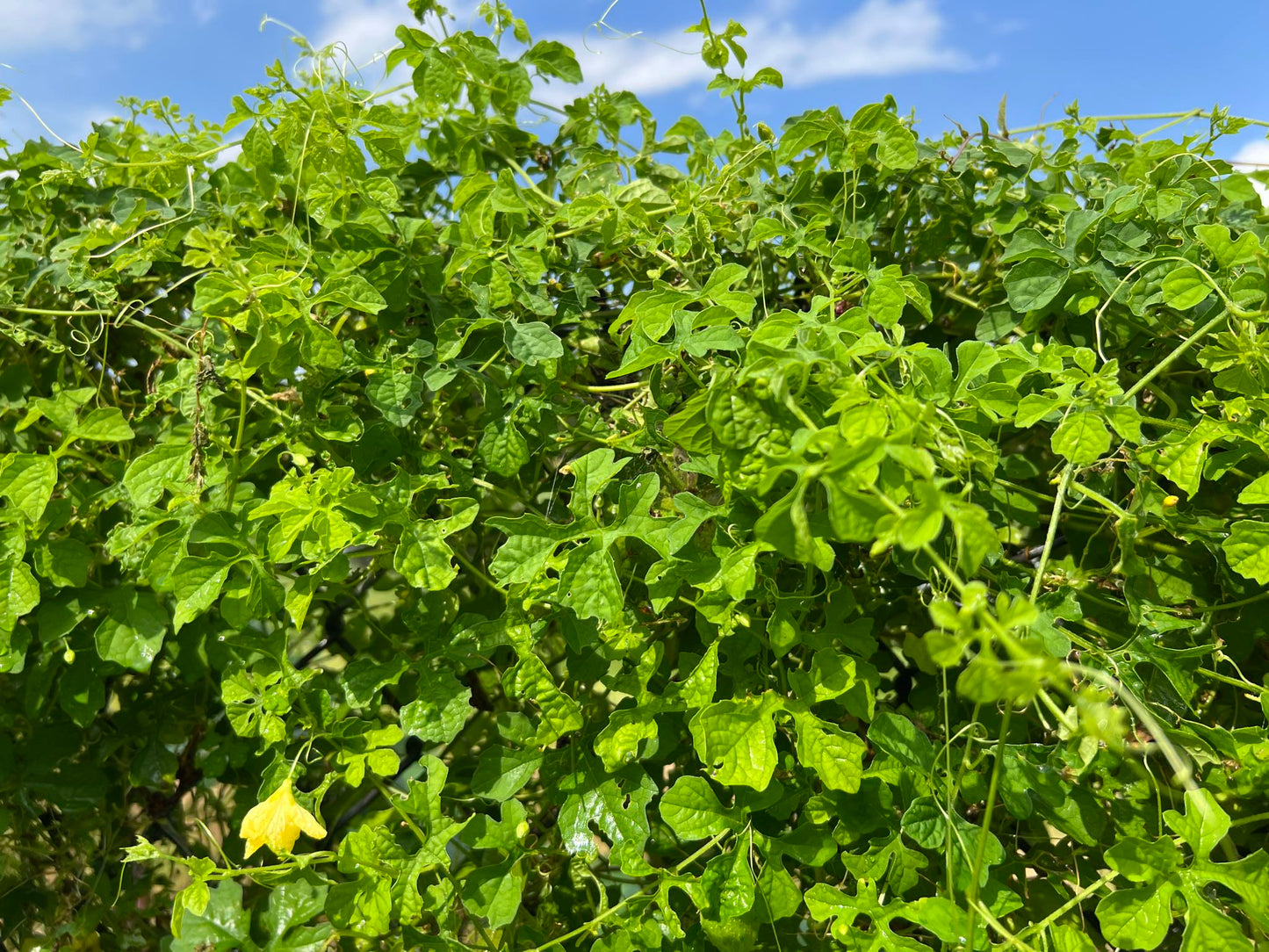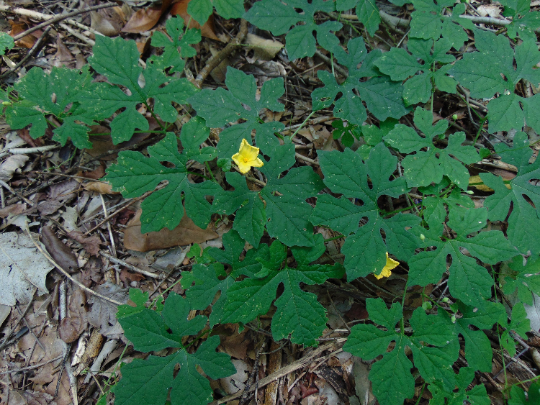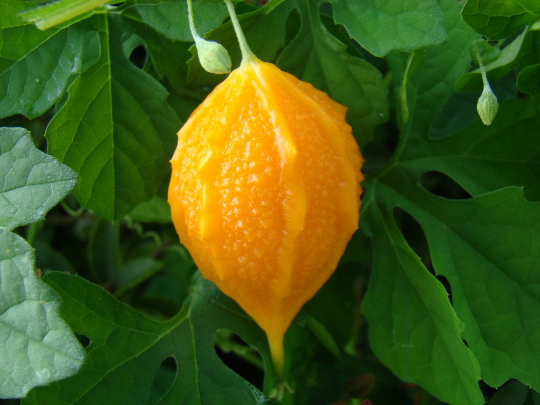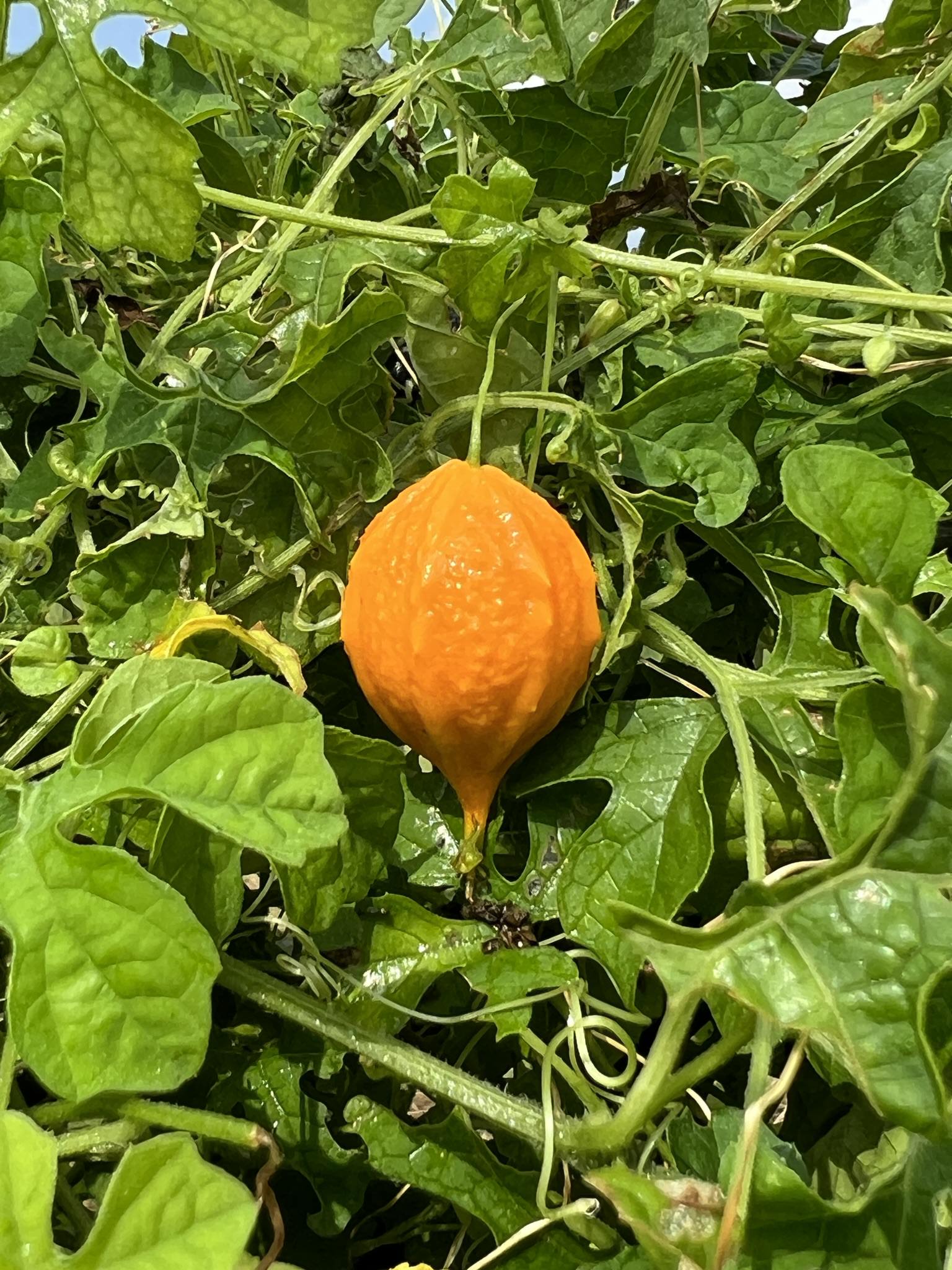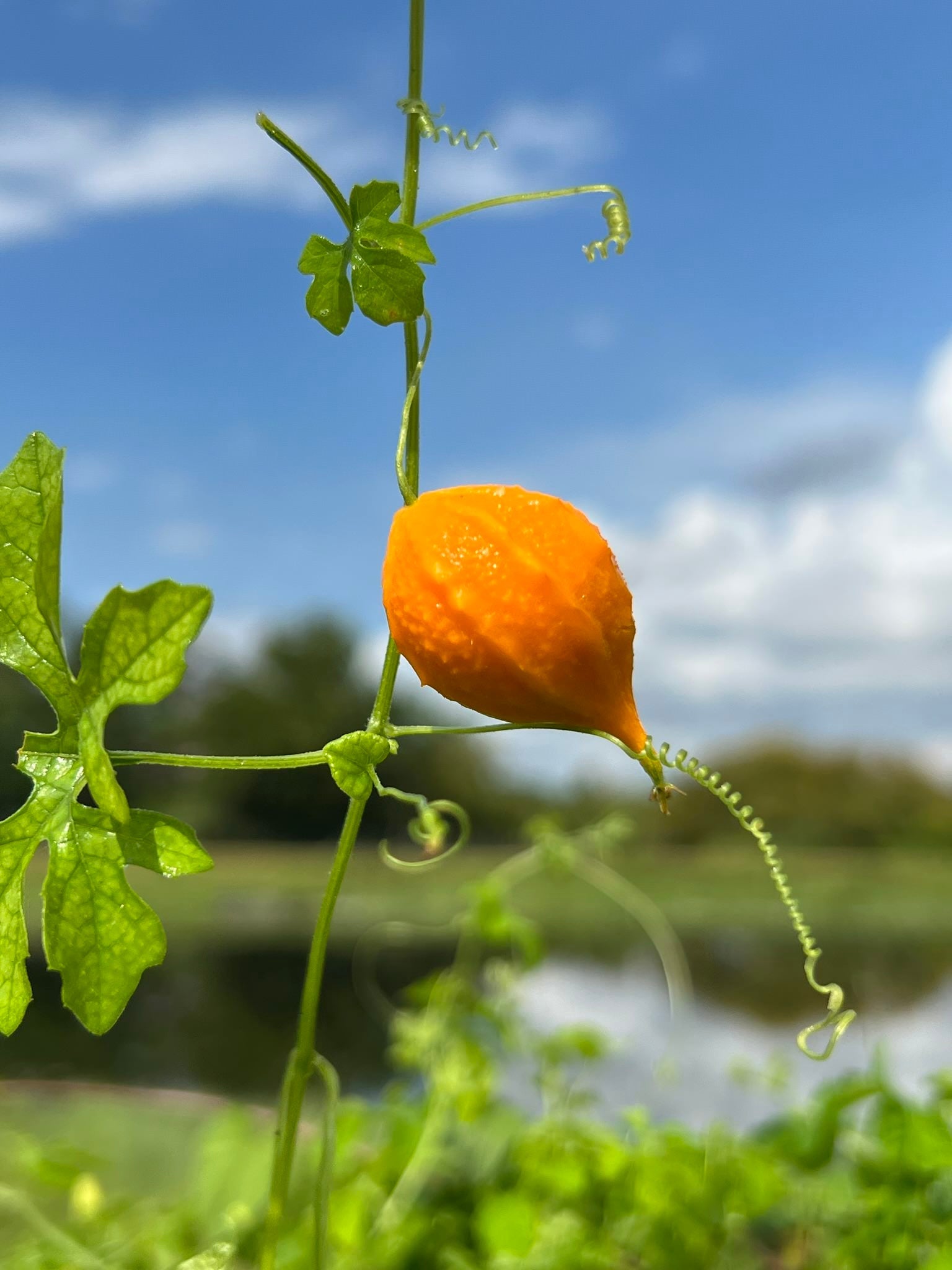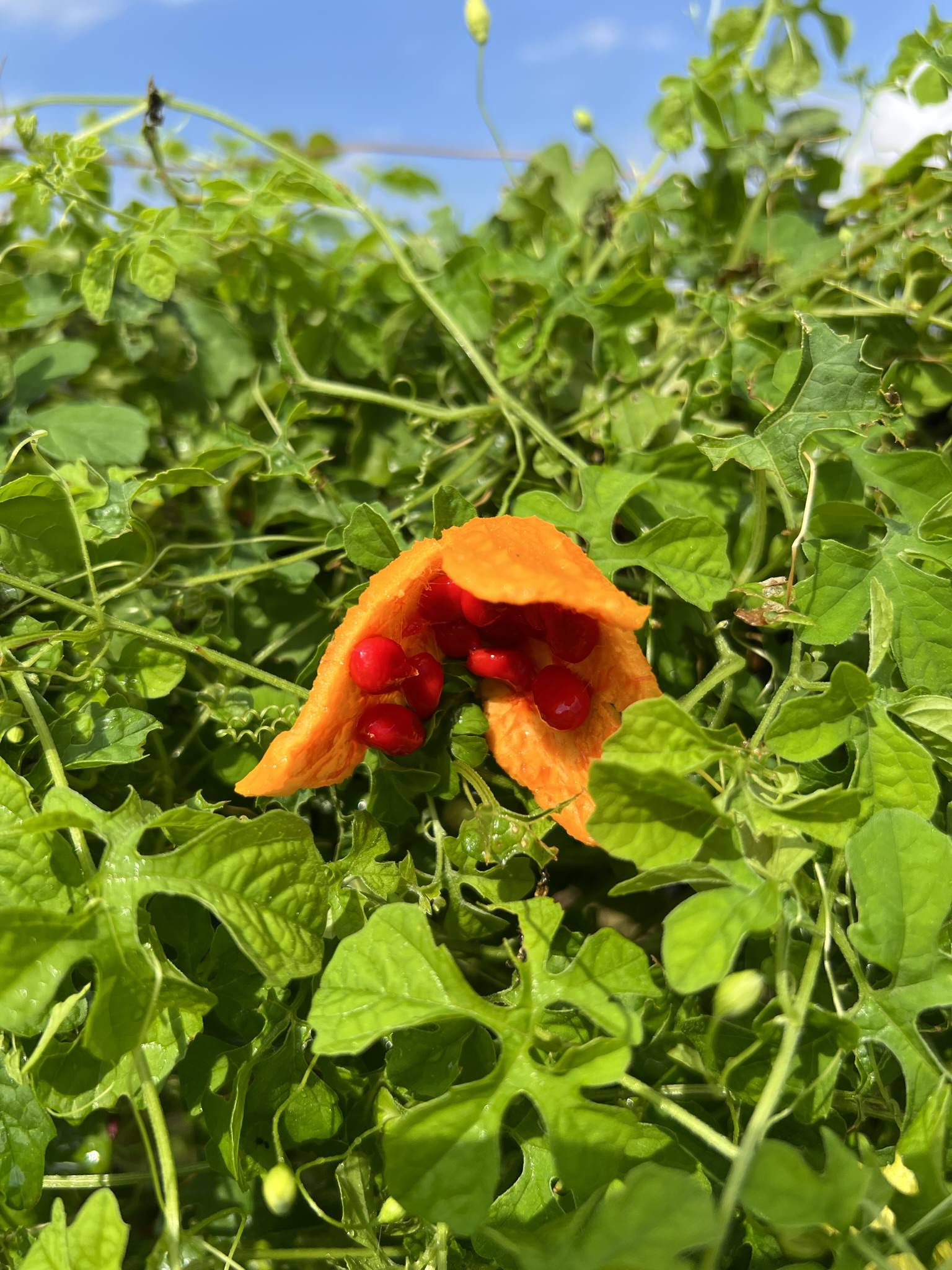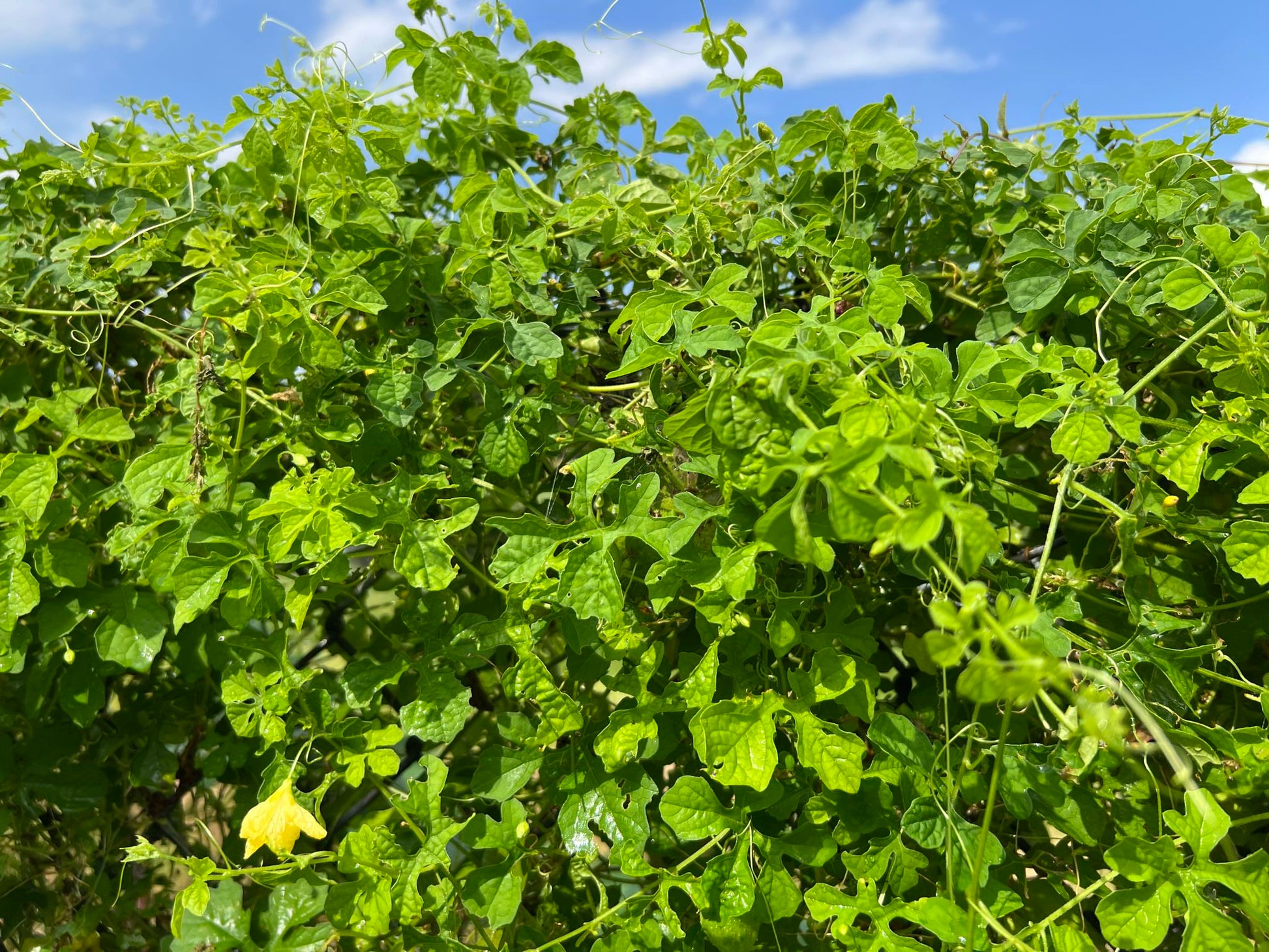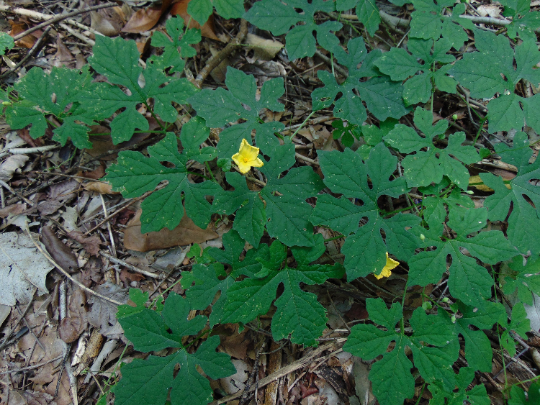Floridaseeds
Bitter Melon Momordica charantia 100 Seeds
Bitter Melon Momordica charantia 100 Seeds
Couldn't load pickup availability
Momordica charantia, commonly known as bitter melon or bitter gourd, is a tropical and subtropical vine belonging to the Cucurbitaceae family, which also includes cucumbers, pumpkins, and squash. Here's a description of its key features:
Appearance: Bitter melon has a distinctive appearance with oblong or elongated fruit that is typically about 10 to 30 centimeters (4 to 12 inches) in length. The skin is rough and bumpy, ranging in color from light green to dark green. When sliced open, the fruit reveals a central cavity filled with seeds and a pale, spongy membrane.
Flavor: As the name suggests, bitter melon has a notably bitter taste, which can vary in intensity depending on the ripeness of the fruit and the cooking method used. The bitterness is caused by compounds known as cucurbitacins, which are present in the fruit.
Nutritional Profile: Bitter melon is low in calories and carbohydrates but rich in vitamins, minerals, and antioxidants. It is particularly high in vitamin C, vitamin A, folate, and potassium. Additionally, bitter melon contains bioactive compounds such as charantin, which may have potential health benefits.
Culinary Uses: Despite its bitter taste, bitter melon is widely used in culinary traditions around the world, especially in Asian, Indian, and Caribbean cuisines. It is often cooked in stir-fries, curries, soups, and stews, where its bitterness can add depth and complexity to dishes. Bitter melon can also be pickled or stuffed and is sometimes juiced for its potential health benefits.
Medicinal Uses: Bitter melon has a long history of use in traditional medicine for various health conditions, including diabetes, digestive disorders, and infections. Some research suggests that bitter melon may help regulate blood sugar levels, improve insulin sensitivity, and support weight management, although more studies are needed to confirm these effects.
Cultivation: Bitter melon is a warm-season crop that thrives in tropical and subtropical climates. It requires well-drained soil, ample sunlight, and regular watering to grow successfully. The vines can be trained to climb on trellises or allowed to sprawl along the ground.
Materials
Materials
Shipping & Returns
Shipping & Returns
Dimensions
Dimensions
Care Instructions
Care Instructions
Share
